The Science Behind Quartz Countertops: From Raw Material To Finished Product
December 01, 2016[Revised July 2024 – updated content and current products added]
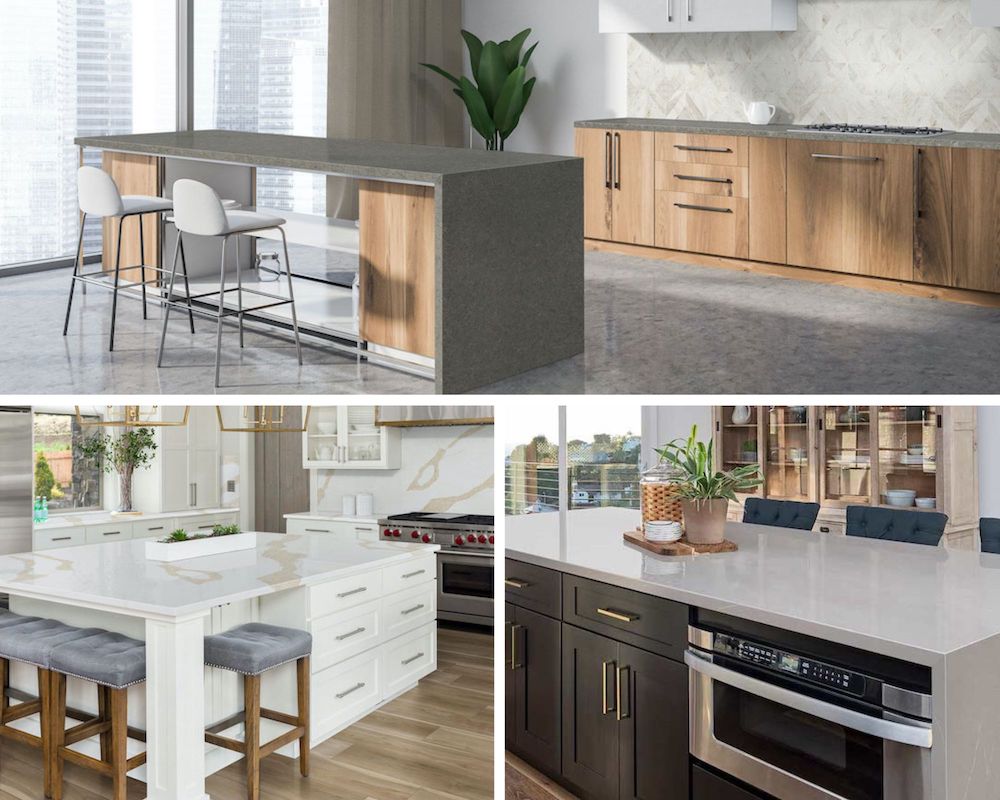
Quartz countertops are quickly becoming the go-to choice for kitchen remodelers, and it’s easy to see why! Imagine having a countertop that looks like stunning granite but is way easier to maintain. That's the magic of a quartz countertop. This non-porous material never needs sealing, and the best part? You can get quartz in any color or design you dream up—not just what's found in nature.
But how does quartz go from raw material to your beautiful kitchen countertop? It all starts with a process called Bretonstone, a patented method that's the gold standard in the industry and used by many quartz countertop manufacturers.
In the early 1970s, Marcello Toncelli and his Breton Company in northeast Italy developed this ingenious system. The Bretonstone process takes small stone aggregates of marble, quartz, silica, and granite and transforms them into a solid surface that looks just like natural stone. These composites are made into slabs with uniform dimensions and various thicknesses, ready to be carved and polished to perfection, just like real stone.
Babylon Gray Quartz
Bretonstone manufacturing today involves adding a polymer mix with a binding syrup and pigments to quartz. The mixture is compacted in an airless vacuum for complete uniformity. Vibrating the quartz mix creates a consistent blend. Through "vibrocompression under vacuum," the mixture is pressurized and heated. The outcome is a non-porous engineered stone slab that can mimic granite or marble or include unique additions like colored glass, mirrored pieces, or semi-precious stones for a stunning finish.
Calacatta Leon Gold Quartz
This man-made stone mix is fantastic because it is scratch and chip-resistant, non-porous, and comes in unlimited colors and designs. You can use it for industrial and residential floors, counters, backsplashes, and hearths. Quartz countertops are so appealing that they were ranked as the #1 kitchen countertop material in July 2013's Consumer Reports.
What Is Quartz, Anyway?
Quartz is pretty amazing stuff! It's a combination of silicon and oxygen (silicon dioxide) and one of the most common minerals on Earth, making up a whopping 12% of the Earth's crust. Not only is it abundant, but it's also incredibly tough. In fact, quartz is one of the hardest non-precious materials out there—only diamond, sapphire, and topaz are harder. Did you know even granite contains 20% to 35% quartz?
You might find some quartz in your own backyard, but the real treasure troves are in places like Canada, Arkansas, Brazil, Germany, and Madagascar. Here in the U.S., big quartz deposits have been discovered in Arkansas, California, and New York. So, whether it's sparkling in your countertop or found in nature, quartz is all around us!
Soapstone Mist Quartz
Benefits of quartz countertops:
- Does not need sealing
- Anti-microbial
- Maintenance free
- Durable
- Scratch resistant
- Stain resistant
- Mold resistant
- Heat and scorch-resistant
- Offers a nearly infinite color palette
- Non-porous
Statuary Classique Quartz
Bretonstone counters are composed of the following materials:
- Quartz mineral: The star of the show, quartz, gives the countertops their signature look and strength.
- Stone aggregates: Including marble, dolomite, and other colored stones found in sand or created by crushing larger stones, these add texture and interest.
- Mineral filler: Finely crushed stone that forms a binding paste when mixed with resin, ensuring everything stays put.
- Binder: Resin combined with filler to fuse everything together, making the engineered stone incredibly durable.
- Pigments: Typically metallic oxides, these create a wide array of colors and hues, limited only by your imagination.
- Additives: Hardening catalysts that help set the stone.
- Antimicrobials: Anti-bacterial agents are included in the quartz production process, providing continuous protection against bacteria growth.
Read More About Quartz:
Are Quartz Countertops Durable? Here's Everything You Need To Know
Design Your Dream Kitchen with MSI's Multi Tone Quartz Countertops
What Is Bretonstone Technology?
Where Do Quartz Countertops Come from?
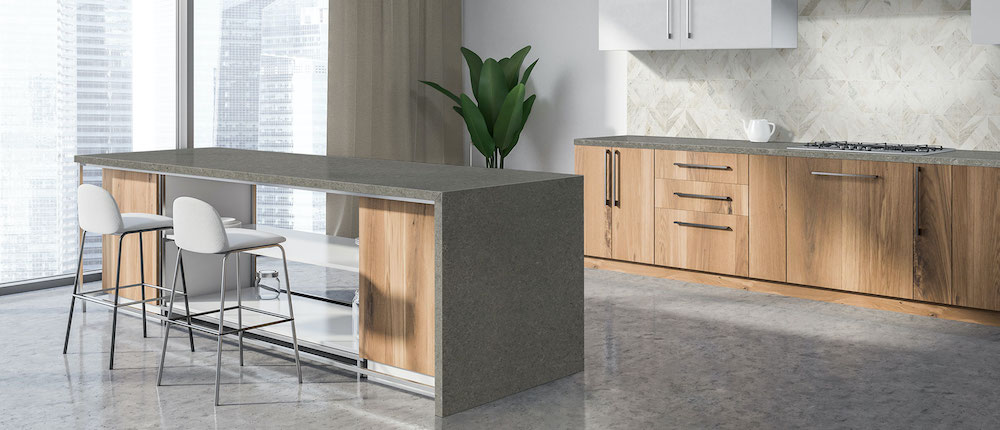 Babylon Gray Quartz
Babylon Gray Quartz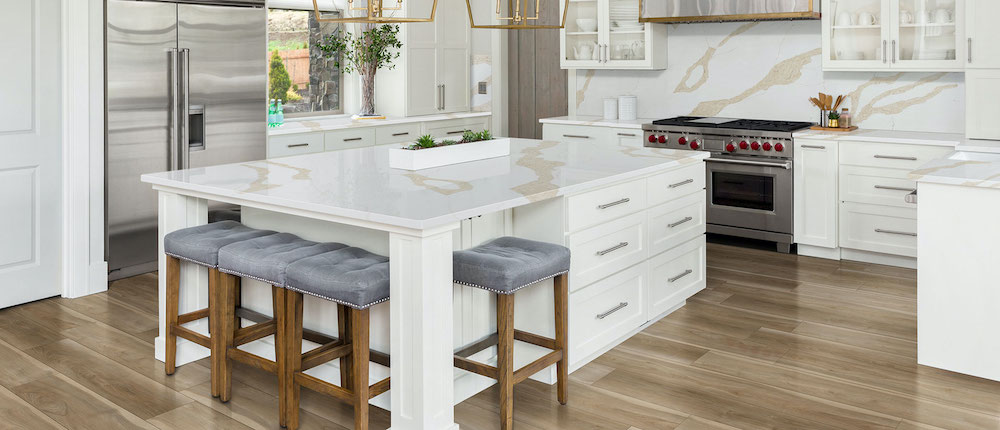 Calacatta Leon Gold Quartz
Calacatta Leon Gold Quartz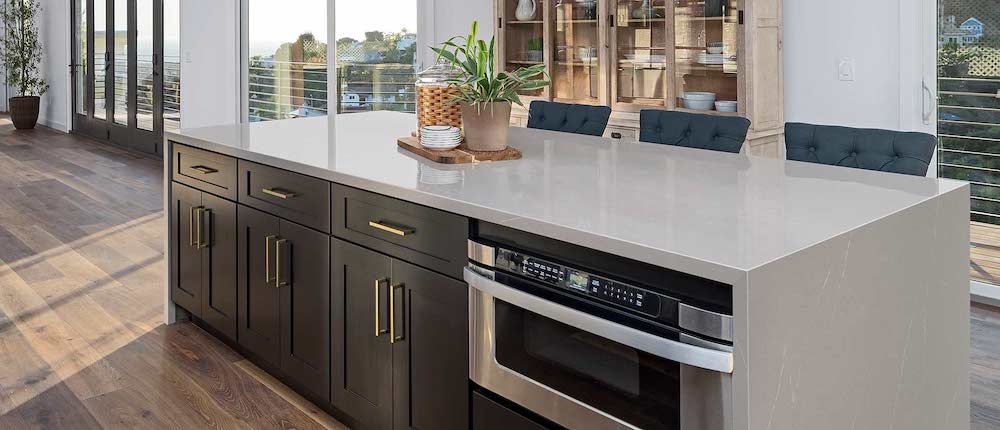
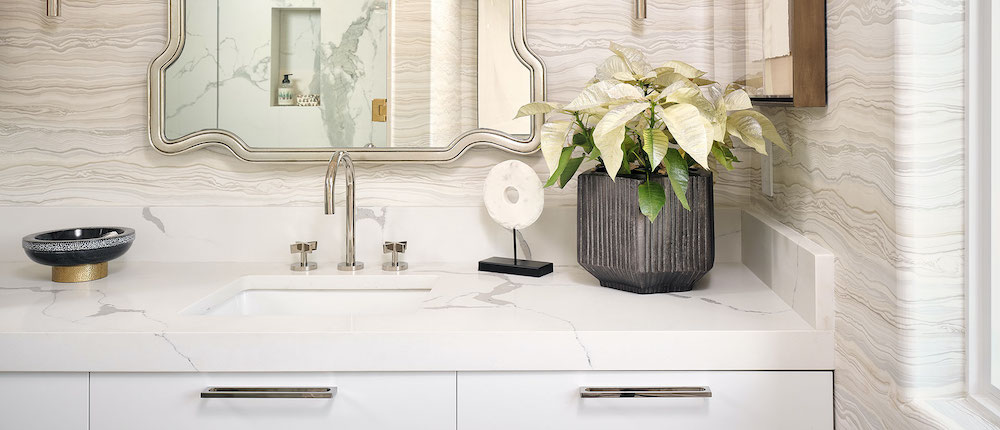 Statuary Classique Quartz
Statuary Classique Quartz